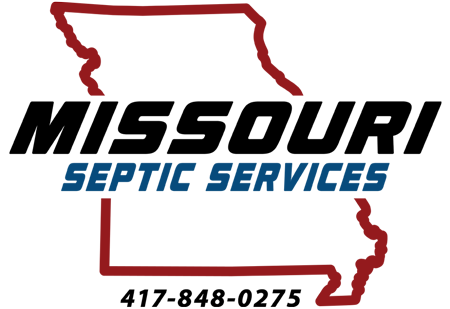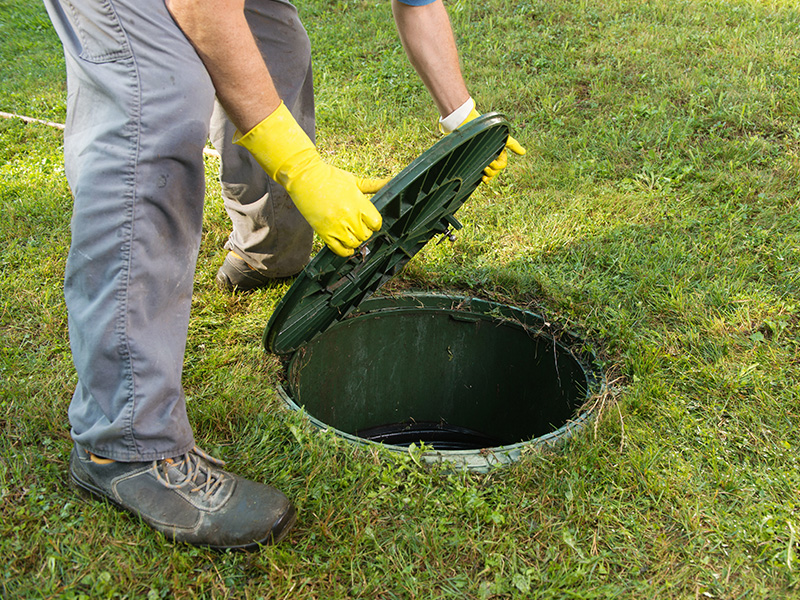Hours: Mon – Fri 7:30am – 7:30pm
A septic system inspection is an essential step in the home-buying process. If you’re a Missouri homeowner, it’s necessary to understand what a septic inspection entails and how to best prepare for one. This guide will provide all the required information so your next septic inspection can be conducted properly and efficiently. From who should perform the inspection to what happens after it’s done, this blog post covers everything related to achieving a successful septic system inspection. It also includes tips on preparing for one. So whether you are looking into purchasing or selling property with a private sewage disposal system, ensure your first step includes understanding septic inspections.
What is a Septic System Inspection
A septic system inspection includes the septic tank, drain field, and other components that comprise the entire system. This inspection aims to assess the septic system’s condition and performance so that any potential issues can be identified and addressed promptly.
Definition of a Septic System Inspection
A septic system inspection examines all parts of a home’s wastewater treatment process. The examination includes checking for signs of damage or wear on both above-ground and below-ground components, such as the septic tank, pipes, pumps, filters, drains, valves, risers (if applicable), distribution boxes (if applicable), leach fields/drain fields (if applicable), etc. In addition, septic inspectors will also look for evidence of leaks or blockages in these areas, which could cause problems with functioning properly if not addressed promptly.
Benefits Of A Septic System Inspection
Regular inspections are necessary because they allow homeowners to identify potential issues before they become serious problems that require costly repairs or replacements. Having your septic system inspected regularly can help ensure it continues to function correctly over time. This will help avoid unnecessary expenses due to neglecting maintenance needs or failing to address minor issues quickly enough before they become major ones later. Additionally, regular inspections help extend its lifespan by allowing you to catch minor problems early on when they are still relatively easy and inexpensive fixes. It is better to do this than to wait until something has deteriorated beyond repairable levels, at which point replacement would be necessary.
Septic Inspections Are Vital
A septic system inspection is vital to maintaining a healthy and functioning septic system. Knowing who should perform the inspection and understanding the types of inspections available is essential to making sure your septic system is up to code and operating correctly.Key Takeaway: A septic system inspection is essential to maintaining a home’s wastewater treatment process. It allows homeowners to identify potential issues before they become serious problems, extend the lifespan of their system, and save money in the long run. Types of inspections include checking for damage or wear to septic tanks, pipes, pumps, filters, drains, etc., looking for leaks or blockages, and assessing overall performance.
Who Should Perform a Septic System Inspection?
Regarding septic system inspections, the most important factor is hiring a qualified professional. The inspector should be knowledgeable and experienced in evaluating septic systems and understand local regulations. It’s also essential to make sure that they are licensed or certified by your state or municipality if required.
Qualified Professionals for the Job:
Hiring a qualified professional with experience inspecting septic systems is essential for accurate results. Look for someone trained to check all system components, including tanks, drain fields, pumps, and other system parts. They should also be familiar with any relevant local codes or regulations regarding septic systems in your area.
Local Regulations and Requirements:
Different states may have additional requirements when performing septic inspections on residential properties, so it’s essential to check with your local government before hiring an inspector. Sometimes, you may need to hire an inspector certified by the state or municipality for their findings to be valid. Before hiring an inspector, consider what services they offer and the rates and fees associated with those services. Some septic inspectors may charge additional fees depending on how long it takes them to complete the inspection. Some septic inspections may include other services, such as testing water quality or providing recommendations for repairs needed after the inspection. Before signing a contract, ensure you understand exactly what is included in the fee. Clarity regarding fees prevents any surprises. Understanding the qualifications and regulations required for a septic system inspection and the cost considerations associated with hiring a septic inspector is essential. Now that you know who should perform a septic system inspection, let’s consider what to expect during one.
Key Takeaway: When hiring a septic inspector, ensure they are qualified and familiar with local regulations. Make sure you understand what services and fees are included in the contract before signing it.
What to Expect During a Septic System Inspection?
Septic inspections involve a qualified professional inspecting the components of your septic system to ensure it is functioning correctly and safely. Knowing what to expect during a septic system inspection can help you prepare for the process and understand any issues that may arise.
Overview of the Process and Timeline:
Typically septic inspections take between one and two hours, depending on the size of your property, the type of septic tank, and other factors. The inspector will begin by assessing the condition of your septic tank, drain field, pipes, valves, pumps, etc., and checking for signs of leakage or damage. They will also take measurements throughout the process to determine if any adjustments need to be made for everything to function correctly. During a septic system inspection, some standard components that are inspected include the septic tank (including baffles), drain fields (including soil percolation tests), risers/lids/covers (to check access points), piping/valves/pumps (for proper flow), alarms (if installed) and other related items such as utility holes or catch basins. The inspector will also look for signs of water pooling around these areas which could indicate problems with drainage or infiltration into nearby groundwater sources.
A septic system inspection ensures your home’s plumbing and drainage systems are in sound working order. With proper preparation, you can ensure that the evaluation process runs smoothly and efficiently.
Key Takeaway: Septic inspections typically take 1-2 hours and involve checking for signs of damage or leakage, measuring components, and inspecting the septic tank, drain fields, pipes, valves, septic tank pump, alarms (if installed), risers, lids, covers and other related items.
How to Prepare for Septic Inspections?
Preparing for septic inspections is essential to ensure that your system runs correctly and efficiently. Before the inspector arrives, gathering all necessary documentation and records related to your septic system is critical. The documentation includes any installation or maintenance paperwork and information about the type of soil on your property. Additionally, you should ensure that all areas around the septic tank and drain field are clean and free from debris or obstructions so that the inspector can easily access them.
Preparing for septic inspections is essential to ensure that your system runs correctly and efficiently. Before the inspector arrives, gathering all necessary documentation and records related to your septic system is critical. Documentation includes any installation or maintenance paperwork and information about the type of soil on your property. Additionally, you should ensure that all areas around the septic tank and drain field are clean and free of debris or obstructions. The inspector will be able to easily access them this way.
Finally, if there are any accessible areas of the septic system, such as pipes or the septic tank, that need to be inspected, make sure these areas are cleared out before the inspector arrives. Clearing around the areas that provide access to inspection will help ensure that nothing gets damaged during the evaluation process. They will be able to see what needs to be inspected more clearly this way. Taking these steps ahead of time can help ensure a smooth inspection process for both you and your inspector.
It is essential to take the necessary steps to prepare for a septic inspection, as this will help ensure that your evaluation is accurate and thorough. Now let’s look at what you should do after the inspection is complete.
After the Septic Inspection – What’s Next?
After a septic inspection, it is essential to understand the results of your report. Your inspector should provide you with an evaluation that outlines any issues or potential problems they have found during their assessment. It is essential to review this document carefully and follow any recommended steps for repairs or maintenance. If you need clarification on anything in the report, be sure to ask questions so that you can make informed decisions about how best to care for your septic system.
Taking care of your septic system after an inspection is also imperative. Regularly checking the septic tank and drain field area can help prevent future problems from occurring by catching minor issues before they become larger ones. Additionally, keeping trees and other vegetation away from these areas is essential, as roots can cause damage over time if left unchecked. Lastly, avoid pouring chemicals down drains or flushing items such as paper towels which could clog up pipes and lead to more costly repairs later on down the line.
Finally, when to schedule another evaluation will depend on several factors, including local regulations and the use of your septic system. Generally speaking, most systems should be inspected every three years at a minimum to ensure everything is functioning correctly and safely. Protect yourself and those around you who may come into contact with sewage waste on your property with regular septic inspections.
FAQs about Septic Inspection
How do you evaluate septic systems?
Septic systems should be evaluated by a qualified professional. They will inspect the septic tank, drain field, and other components to determine if they are functioning correctly. If any issues are found, they can recommend repairs or replacements that may be necessary. Additionally, they can advise on proper maintenance to ensure the system works efficiently and safely for years to come. Regular septic inspections and maintenance of your septic system are essential to keep it running smoothly and avoid costly problems down the road.
Conclusion
It is also essential to keep up with regular maintenance and inspections of your septic system to prevent future problems. With proper care and maintenance, you can help extend the life of your septic system and avoid costly repairs down the road. Septic inspections are an essential part of owning a home with a septic system, so make sure you get one done today.
At Missouri Septic Services, we understand the importance of a working septic system. We are committed to providing the highest quality service and solutions for all your septic system needs. Missouri Septic Services has you covered whether you are a homeowner needing regular maintenance and pumping services or a real estate agent looking to inspect a home’s septic system. Our team of professionals will help you identify issues with your current system and provide reliable advice on keeping it running correctly. The knowledge and commitment to excellence they bring to their septic systems give customers peace of mind. Contact Missouri Septic Services today to get started on making sure your septic system is in top condition
Areas We Serve Include:
- Battlefield, MO
- Billings, MO
- Branson West, MO
- Branson, MO
- Clever, MO
- Crane, MO
- Fair Grove, MO
- Fordland, MO
- Fremont Hills, MO
- Galena, MO
- Highlandville, MO
- Hurley, MO
- Marshfield, MO
- Nixa, MO
- Ozark, MO
- Republic, MO
- Rogersville, MO
- Seymour, MO
- Sparta, MO
- Springfield, MO
- Strafford, MO


